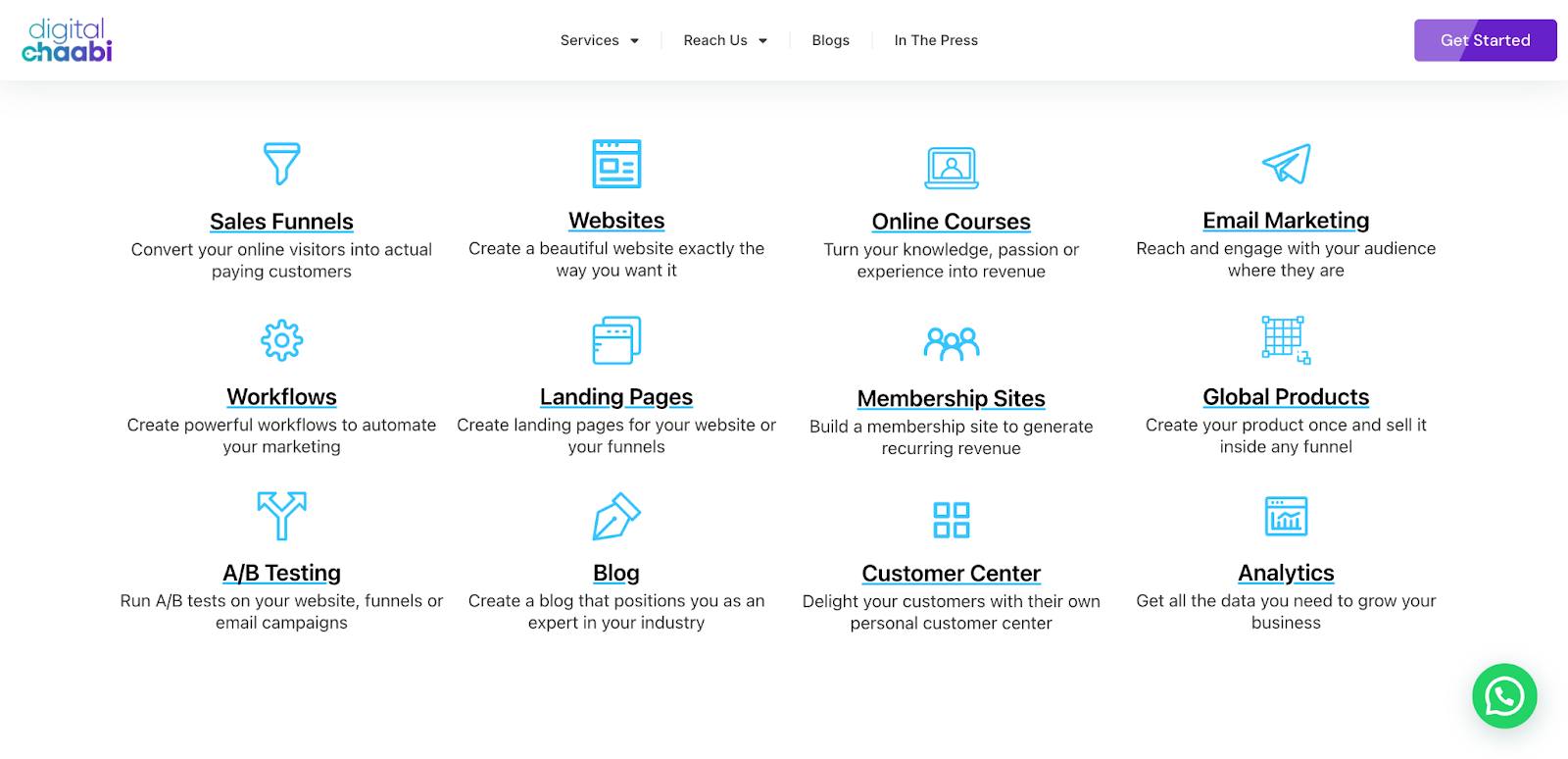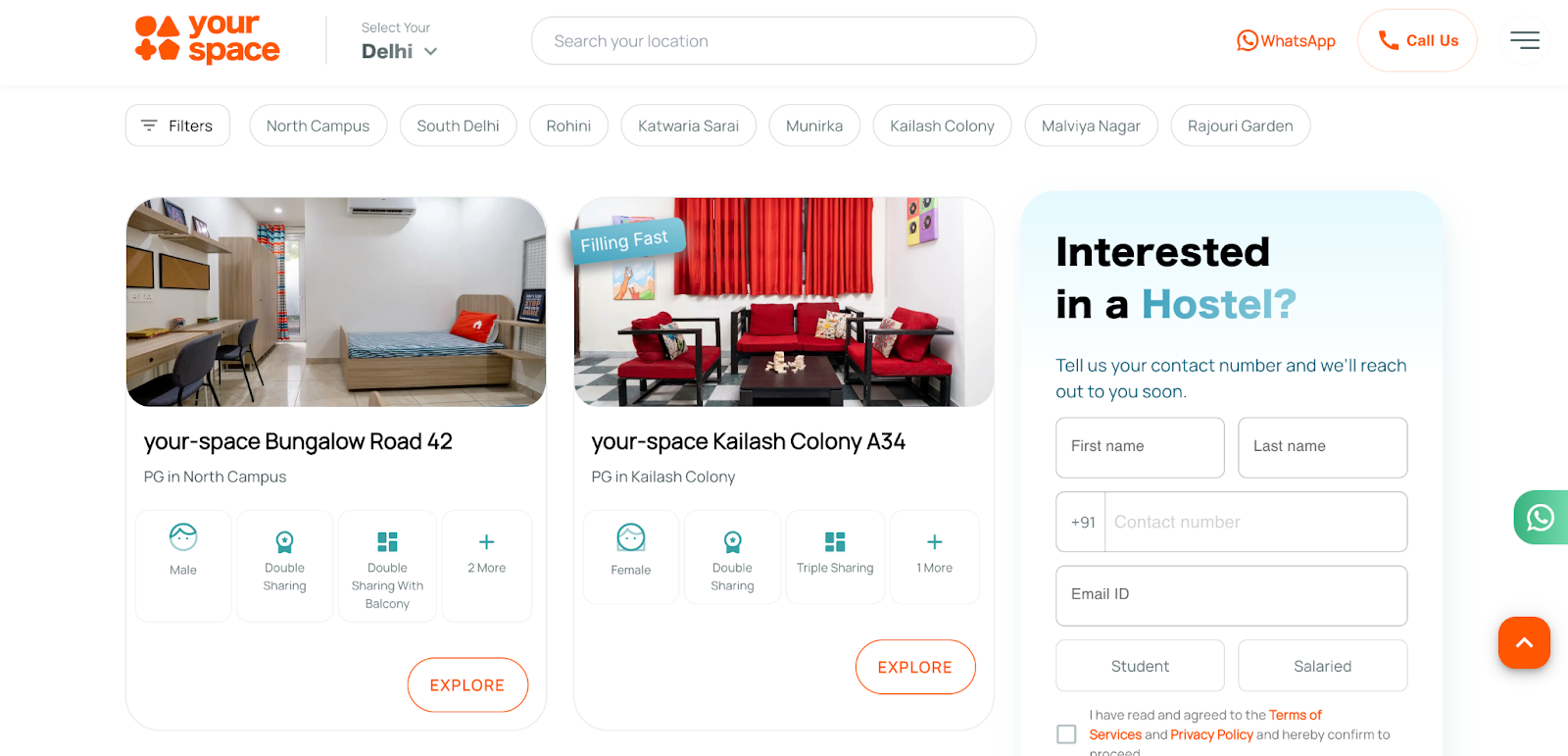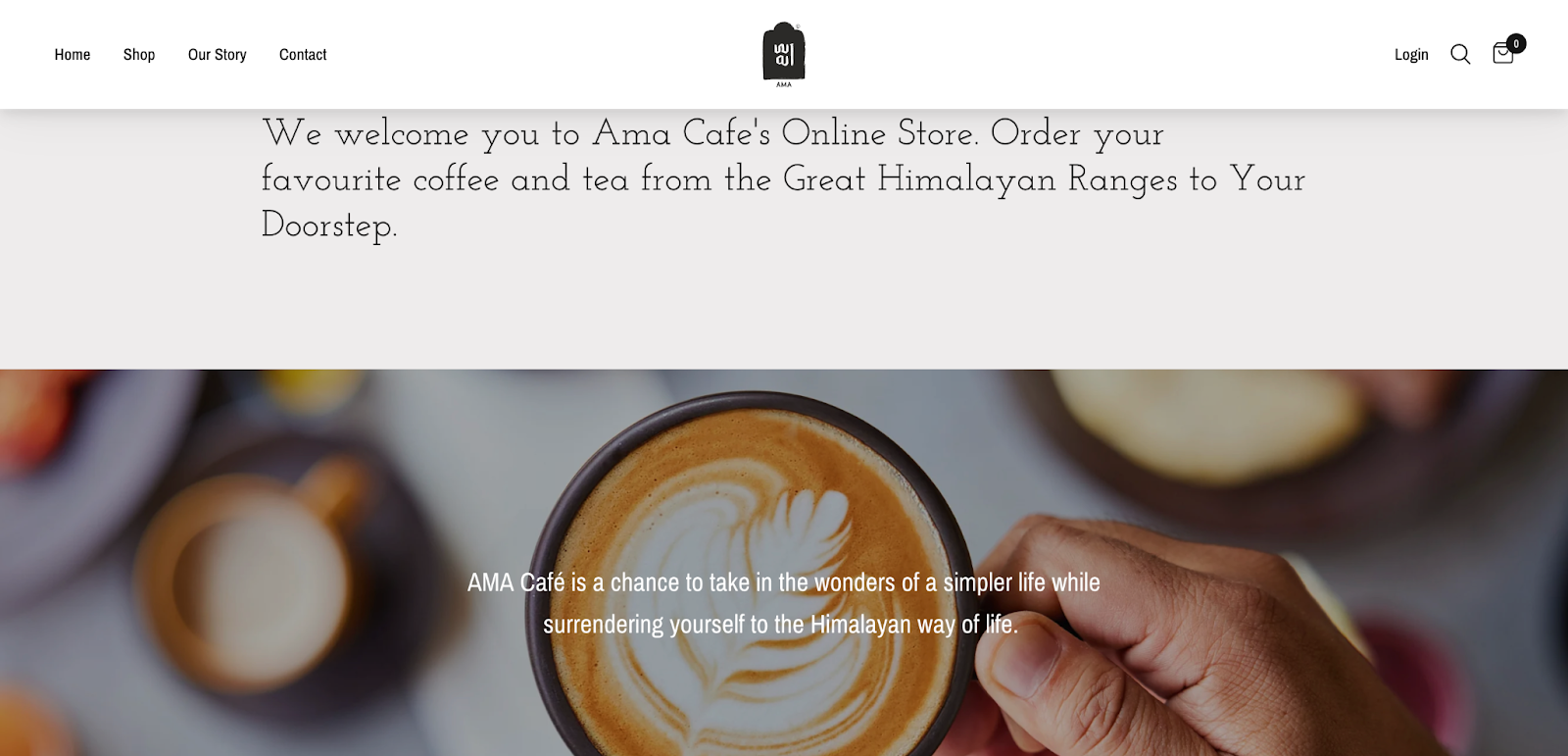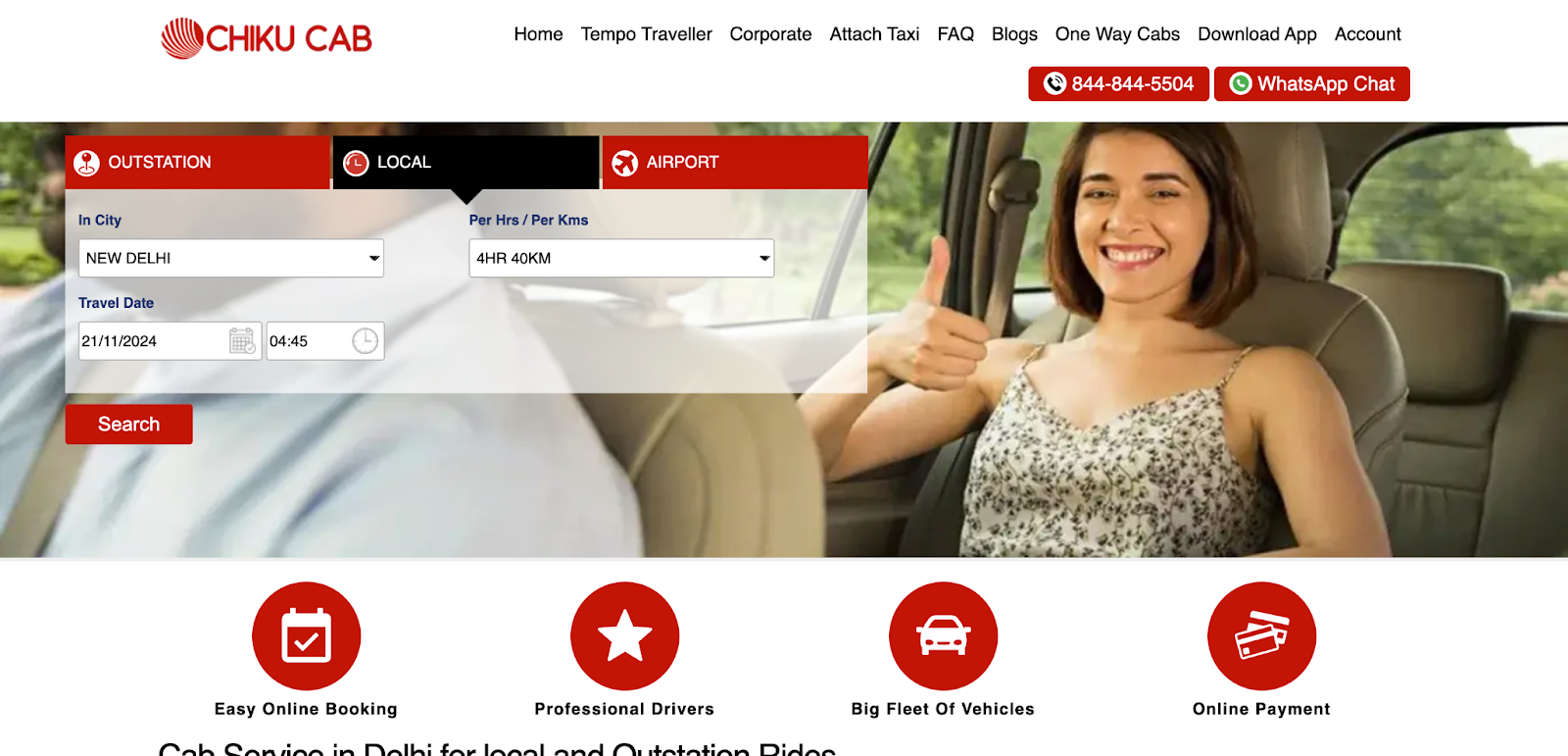Delhi, the capital city of India, is a bustling hub and an attractive location for entrepreneurs seeking small business ideas. When it comes to industrial, tourist and IT infrastructure, Delhi's economy is among the best in the nation, and it's rising at a rapid pace.
To every entrepreneurial mind and anyone with an urge to start their own venture, even if it's small, should come to Delhi to build their business. This vibrant city welcomes everyone and offers countless potential for businesses to flourish.
This article covers the best small business ideas in Delhi and how to realistically start them.
Why start a small business in Delhi?
1. Economic growth and urbanization
A strong economic climate is available for ambitious business owners in Delhi. The state's Gross State Domestic Product (GSDP) is expected to increase at a CAGR of 9.12% from 2015-16 to 2023-24.
Moreover, the vast majority of Delhi's urban populace is willing to put money into start ups and small enterprises. Because of the city's exciting and adventurous atmosphere, even a little food stall can make a lot of money.
With each passing day, the city brings with it more and more market potential and exciting fresh opportunities.
2. Diverse consumer market
Delhi is home to a diverse population that spans from the middle class and upper middle class to the ultra-wealthy and millionaires. Pick the customer segment you'd want to focus on and enter the market.
No matter how pricey or inexpensive a product or service is, it will be in high demand in Delhi.
Plus, being a small business owner allows you to focus on your firm whilst also catering to your customer's specific needs. You can keep an eye on market trends and address a particular section of customer feedback with ease.
3. Government support for entrepreneurs
Each year, Delhi sees a greater influx of new businesses. By 2030, the Delhi Startup Policy hopes to have transformed the city into a leading location for startups and an international center for innovation. Student assistance, professional advice, and collateral-free loans are all part of the program.
The government of Delhi is also getting ready to launch the Delhi Bazaar Portal. This is an online marketplace that will bring together vendors from all over the world.
On top of that, the Indian government has many schemes and initiatives meant to help new companies get off the ground and make a splash in the economy.
How to select the right small business idea in Delhi?
1. Assessing market demand
Before diving in, research local trends using tools like Google Trends, Justdial, and social media. Identify gaps in the market. Think about what do people need but aren’t getting? For instance, the surge in health consciousness has fueled demand for healthy tiffin services. Attend local trade fairs, events, and market surveys to get firsthand insights into customer preferences.
2. Investment and resource planning
Estimate your initial investment, ongoing costs, and expected returns. Delhi offers both high-end and budget-friendly commercial spaces, so choose a location that matches your business model. Consider whether you need a storefront, can work from home, or can operate online.
Legal and regulatory considerations
Register your business with the appropriate authorities, obtain necessary licenses (e.g., FSSAI for food businesses), and comply with GST regulations. Delhi’s single-window clearance system simplifies many processes, but always consult a professional for compliance.
Pro Tip: The Delhi government’s Business Blasters program is an excellent starting point for young entrepreneurs.
Best small business ideas in Delhi
Here is a list of the best business ideas in Delhi, India, you can launch with as little as 1 to 10 lakhs of investment. These suggestions are made with specific needs of the Indian market, particularly those of the Delhi NCR metropolitan regions.
1. Designer lehenga and textile business
Brides, grooms, and their families travel from all over the globe to Delhi in order to find the ideal wedding dress and guest outfits. The city provides a diverse selection of textiles, ranging from traditional to modern. This is a profitable sector that you can break into if you have an eye for fashion and fusion.
Chandni Chowk is well-known for its wholesale lehengas and unstitched outfits. This makes it an ideal location for an ethnic wear store or boutique specializing in festive and wedding attire.
To promote your small business idea, you can use social media to display trendy designer lehengas and gowns, which will appeal to buyers who are looking for affordable fashion. Many store owners now also use WhatsApp groups to inform their customers about new arrivals, daily deals, and promotional events like clearance sales and special discounts.

2. Content creator equipment store
With a predicted 25% rise and a total of INR 2,344 crore by 2024 and INR 3,375 crore by 2026, the influencer industry in India is set to see exceptional growth. The increase in content creation across various platforms has been driving up the need for high-quality equipment. So, capitalizing on the increasing demand for content-related equipment, such as microphones, tripods, and lights, is possible due to this rise.
When shopping for electronics, locals in Delhi go to "Chawri Bazar." Opening a store there can be a good bet for entrepreneurs since content creators often visit this market for affordable video equipment.
If you're short on capital and can't afford to open a physical shop, you may want to think about opening an online store instead. You can create an intuitive website that is simple to use, with safe payment methods and clear navigation.
Also, promote your online store effectively with influencer collaborations, social media marketing, and email campaigns. It is possible to build a successful company that meets the increasing demands of content producers by integrating low prices with the ease of online buying.
3. Digital marketing and social media management
This is one of the best low-investment business ideas, with demand that will only increase over time. Jobs in digital marketing and social media services have seen a surge in demand recently, creating a great chance for new businesses to skyrocket in no time.
With a projected value of INR 537 billion by the end of 2024, the Indian digital marketing sector is vast and ready to explode. To help companies in Delhi, especially startups, stand out online, you can provide services like social media management, search engine optimization, marketing strategy and more.
Make a name for yourself as an e-commerce expert or social media manager and start getting high-ticket clients. There is a high potential for major earnings with a little initial investment in this line of work.

4. Hostels and PG
Thousands of people come to Delhi for studies and work, leaving their homes behind. The demand for hostels and PG accommodations is high year-round, as people are always on the lookout for decent places to stay.
First things first: figure out what is that people are looking for in a hostel or PG and which location they prefer. If you want to wow your clients, you need to build a hotel in a high-demand locality with all the facilities that are needed.
You might assume that starting a hostel or PG is a huge financial commitment, but if you do it on a modest scale, it can really be inexpensive.
If you're looking to save money on construction costs, leasing a building instead might be a good option. Or, you can take over an existing hotel or PG and handle the management, staffing and everything in between.
If you're looking to save money on construction costs, leasing a building instead might be a good option. Your other option would be to acquire an already established hotel or PG and run it from top to bottom.

5. Event management
As an evergreen industry, event management is filled with opportunities for entrepreneurs in Delhi. The city plays home to many parties all year round, from weddings and corporate events to birthdays and other special occasions, making it an ideal location to launch a low cost event management business.
This business has enormous potential for those who are great at strategizing, communicating with stakeholders, handling logistics, and keeping up a network of connections.
If you're just starting out, it could be wise to host smaller events, such as cocktail parties or get-togethers with no more than 40-50 guests. Everything from the company's budget to its food, guest lists, décor, and travel arrangements will be better understood after reading this.
Meanwhile, having a solid portfolio that displays your work is crucial if you want to attract new customers.
6. Customized stationery and packaging solutions
Aspiring entrepreneurs will find a treasure trove in Delhi's bustling Sadar Bazaar, which is home to a wide variety of vendors including paper merchants, book supplies and printers. A one-of-a-kind variety of stationery items can be made by combining the knowledge of local craftspeople and high-quality raw materials.
Creative entrepreneurs looking for low-investment business ideas that allow them to expand and explore people's demand for customization will love this one.
When you're just starting out, you may keep expenses down by not having to rent an office or a storefront major perk of the stationery and packaging business is that it can be started from the comfort of your own home with minimal investment.
Get yourself a solid website and establish a presence on the internet. This will open doors for customers in need of gifting or packaging services.

7. Online tutor
An excellent low-investment business idea is to establish an online teaching if you have subject-matter knowledge. Depending on your subject matter expertise and market demand, you have the potential to earn INR 500 to INR 1,000 per hour as an online tutor in Delhi.
Leverage your expertise to teach a variety of courses, including academics, languages, culinary, dancing, music, and more, with minimum startup fees, usually under INR 50,000. A laptop, reliable internet access, and some simple audio equipment (mic and headphones) are all that's needed to begin going.
Mukherjee Nagar, Patel Nagar, and Old Rajinder Nagar are filled with students preparing for competitive exams. Once someone from there starts liking your teaching method, word of mouth can spread like wildfire.
This is a great home-based business concept since it allows you to start small and expand as your client grows.
8. Food café
One of the most common things Delhiites do is splurge on delicious meals. Delhi offers a culinary paradise, from the traditional Paranthe Wali Gali and Dolma Aunty Momos to the hip cafés of Hauz Khas. If you have an interest in the food industry, this may be one of the most profitable business ideas to explore.
Start small and attract clients by serving cuisine-specific or street-style meals. It will only be a matter of time until you establish a second café after your first one becomes famous, and then another, and another, until you have built a profitable chain all across the city.
You can also open a fancier café to cater to the urbanites and students of Delhi if you have a lot of money to put in. Attracting a constant flow of clients is effortless when the vibe and food are just perfect. However, a large chunk of your investment should go into infrastructure, cloud kitchens, interior designers, and other necessities for this sort of café.

9. Taxi services
While services like Ola, Uber, and Rapido have simplified many aspects of our lives, private taxis are still the way to go for longer journeys or many days of transportation.
The two main ways to get into the taxi industry are to buy a car outright or to find investors. Here, the investor puts up the car as collateral and gets either a percentage of the earnings or a set rate of return. This method provides an opportunity for both parties to share financial risk while simultaneously increasing their chances of a positive return.
The sector is quite competitive, and it is essential to have well-defined long-term goals before starting a taxi service. The foundations of good company management and consistently high-quality service, trouble-free operations and satisfied passengers. Therefore, coming up with new marketing tactics is crucial for standing out and achieving long-term success.

10. Zumba studios
Zumba is a popular fitness program that incorporates fun, high-energy dance styles including salsa, mambo, and hip hop. One thrilling way to cash in on the fitness craze while also giving people a great place to work out safely and enjoyably is to open a Zumba studio.
While it may be more cost-effective to launch your company in an existing gym, doing so may restrict your ability to expand. Choosing a prominent and easily accessible studio location can help you establish your Zumba studio's brand and draw in more customers if you want a more autonomous approach.
You can build a solid reputation by providing excellent classes, communicating in a professional manner, and actively seeking out good feedback from your students.
Small company owners in Delhi can take advantage of the city's varied customer base, industry-friendly government policies, and strong economic development to build any type of business.
Starting your small business in Delhi: first steps
If you want to start a small company in Delhi, you'll need a good strategy, some early funding, and a thorough business plan. Some of the basic steps to give life to your small business ideas are given below:
1. Build a business plan
It's possible that your small business idea has tremendous potential. However, you must begin with a strong business plan if you want it to be successful.
A comprehensive business plan will serve as both a guide and a yardstick for your success. Even more importantly, an investor will likely want to see your business plan before they even consider giving you a loan for your small business.
In most cases, a business plan will contain:
- Primary points of the plan
- Overview of your company's operations and activities
- Analysis of the market and its approach
- Leadership, employees and other team information
- Various financial records
- Other business information
2. Get a domain
After you have a solid business plan and a clear notion of how to proceed with your idea, it's time to move on to the next phase, which is to get a domain name for your company and make your idea a reality online.
A domain is something that the visitors will enter in order to access your website.
You typically have two options when it comes to getting a domain name: either via your website builder or web hosting partner or through a domain registrar.
Take GoDaddy, for example, you can get a personalized domain name at an affordable price.
In most cases, a .com extension is the way to go unless your business is really localized, such as in India (.in). Naturally, there are a lot of thriving companies that go with more modern domain extensions, such as .me or .info. So, you can choose from various domain extensions that are suitable for your business.
3. Build a website
The next most crucial step, after getting a domain name, is building a website. To be visible in the digital world, every kind of company needs a website.
From providing services or selling items to sharing information, websites can serve many purposes. Some of the most common kinds of websites are Blogs, Personal websites, and Business websites.
While every company's website has its own distinct voice and style, here are a few essentials to get you started:
- Homepage: This is more like an introductory page that describes your company, its services, and what makes it unique.
- Menu/Services: Make it simple for clients to do business with your company by providing an online shop, a menu, and a list of services in one place.
- About page: To engage your audience, share the background and purpose of your company.
- Contact Page: Make sure to include all necessary contact information, such as physical address, business hours, email, phone number, social media connections, and more on this page.
- Blog: Update your website with new information that is relevant to your company, industry, or community. Additionally, a blog contributes to increasing your search engine rating.
Reach out to potential customers as soon as your company's website is up. Let your social media followers know about your online store, and maybe even provide a special deal to the first few people who buy from you. Another option is to compile your client list and use it to create an email newsletter. The options for promoting your website are unlimited once it is up.
Related: How much does it cost to build your website in India?
4. Register your business
It is mandatory to register your company before starting a business in Delhi. How you go about registering your business will differ depending on whether you want to run it as a partnership, limited liability corporation, or sole proprietorship. Here are the main procedures:
- One must first get a DSC or digital signature certificate.
- Get DIN (Director Identification Number).
- Create an account by going to mca.gov.in and clicking on "New User Registration."
- Fill out the application for company registration.
Your company will be officially recognized and set up to run after you finish these processes.
Case studies: Delhi entrepreneurs who made it big
When you’re starting your own business in Delhi, nothing is more motivating than learning from those who have already walked the path and achieved remarkable success. Here are two prominent examples of Delhi-based entrepreneurs who started small and built nationally recognized brands, proving that ambition, innovation, and local understanding can drive phenomenal growth.
Biryani By Kilo: from cloud kitchen to nationwide sensation
Biryani By Kilo (BBK) launched its first cloud kitchen in the Gurugram-Delhi NCR area in 2015, capitalizing on Delhiites’ love for authentic, slow-cooked biryani. Founders Vishal Jindal and Kaushik Roy saw a gap in the market for premium, freshly-prepared biryani delivered to the doorstep. Unlike typical restaurants, BBK adopted a “cloud kitchen” model—operating with minimal real estate costs and focusing on delivery through online platforms.
Their innovation? Each order is cooked in a handi (traditional clay pot) and delivered sealed, ensuring freshness and authenticity. Strategic alliances with food delivery platforms like Zomato and Swiggy, combined with a sharp focus on customer feedback, allowed BBK to expand rapidly. Today, BBK boasts over 100 outlets across India and has set a benchmark for quality-driven, scalable food businesses.
Key Takeaway? Identifying a niche, using technology for efficient delivery, and obsessing over product quality can turn a local food venture into a national brand.
Lenskart: revolutionizing eyewear from a delhi office
Founded in 2010 by Peyush Bansal, Lenskart began in a small Delhi office with a mission to make quality eyewear accessible and affordable for all. At a time when the Indian eyewear market was fragmented and dominated by offline players, Lenskart introduced a direct-to-consumer model. Through a user-friendly website and later a mobile app, customers could order prescription glasses and try frames virtually—an entirely new experience in India.
Lenskart’s relentless focus on technology (such as 3D try-ons and home eye check-ups), robust after-sales service, and aggressive expansion into physical stores propelled its growth. The company’s “omnichannel” approach—blending online convenience with offline experience—helped it capture a huge market share. Today, Lenskart is valued at over $4 billion, with 2,000+ stores across India and international expansion underway.
Leveraging technology, providing exceptional service, and seamlessly integrating online and offline channels can disrupt even traditional industries.
Lessons learned from these successful entrepreneurs
What do these Delhi success stories teach aspiring entrepreneurs?
- Focus on Customer Experience: Whether it’s hot biryani or stylish spectacles, both brands built loyalty by exceeding customer expectations at every step.
- Leverage Technology for Scalability: Embracing digital tools—be it cloud kitchens, e-commerce, or virtual try-ons—allowed these businesses to scale rapidly without losing quality.
- Adapt Quickly to Market Changes: Both BBK and Lenskart constantly refined their offerings based on market feedback, ensuring they stayed relevant and ahead of competitors.
The Delhi market rewards businesses that blend tradition with innovation, so don’t be afraid to reimagine old ideas with new technology or service models!
Start your business in Delhi today
Starting a small business in Delhi is both challenging and rewarding. With the city’s vibrant economy, supportive government policies, and diverse consumer base, the possibilities are endless. Whether you dream of running a food stall, launching a digital agency, or opening a boutique, success hinges on smart planning, market research, and relentless execution.
Remember, every big business started small. The key is to take the first step, learn continuously, and adapt to the ever-changing Delhi market. Use this guide as your launchpad - choose an idea that aligns with your passion and skills, leverage the resources available, and build connections within the entrepreneurial ecosystem.
Are you ready to carve your niche in Delhi’s booming business landscape? The time to act is now - your entrepreneurial journey starts today!
Frequently Asked Questions (FAQs) on small business ideas in Delhi
1. What are the most profitable small business ideas in Delhi?
For Delhi entrepreneurs seeking to start small and earn large profits, some lucrative business ideas include event management, online tutoring, and digital marketing companies. These low-investment ventures can be launched with less than Rs 1 lakh, yet they have the potential to provide substantial profits. Food delivery, digital marketing, tuition centers, and eco-friendly products are currently among the most profitable small business ideas in Delhi.
2. How much investment is needed to start a small business in Delhi?
The capital needed to start a small business in Delhi might vary greatly from one industry to another and from one level of operation to another. Some businesses can be launched with very little funding, while others may need substantial initial capital. For an estimate, the average investment required to start a small business in Delhi is between ₹80,000 and ₹2 lakh. Home-based businesses can start with as little as ₹50,000, while retail outlets may require ₹2-5 lakhs or more.
3. What are the challenges faced by small business owners in Delhi?
Here are the top three challenges faced by small business owners in Delhi:
- Competition: For a small-scale business, the risk of being overshadowed by the competition is always there. Producing top-notch goods and services isn't a certain way to attract buyers. To make a name for yourself and draw customers in, you need to promote your company.
- Costs of Labor: If your small business ideas require highly trained staff, keep in mind that labor costs in Delhi NCR can be on the steep side. Business owners need to include these costs in their pricing strategies and budgets.
- Limited Funds: A steady flow of capital is needed for the operation of any business. While taking out a high-interest loan from Non-Banking Financial Companies (NBFCs) may seem like a smart idea at the time, it will only cause long-term financial difficulties. Meanwhile, finding investors could be a major obstacle when trying to raise enough capital for your new business.
4. Are there any government schemes to support Delhi startups?
Yes, schemes like MUDRA loans, Startup India, and the Delhi Startup Policy offer financial aid, mentorship, and subsidies for new businesses.
5. Can I start a business in Delhi from home?
Absolutely! Ideas like online reselling, digital marketing, home bakeries, and tuition centers are perfect for home-based entrepreneurs.
6. What legal permits are needed for a small business in Delhi?
Depending on your business, you may need GST registration, FSSAI (for food), shop establishment license, and local municipal permits.









